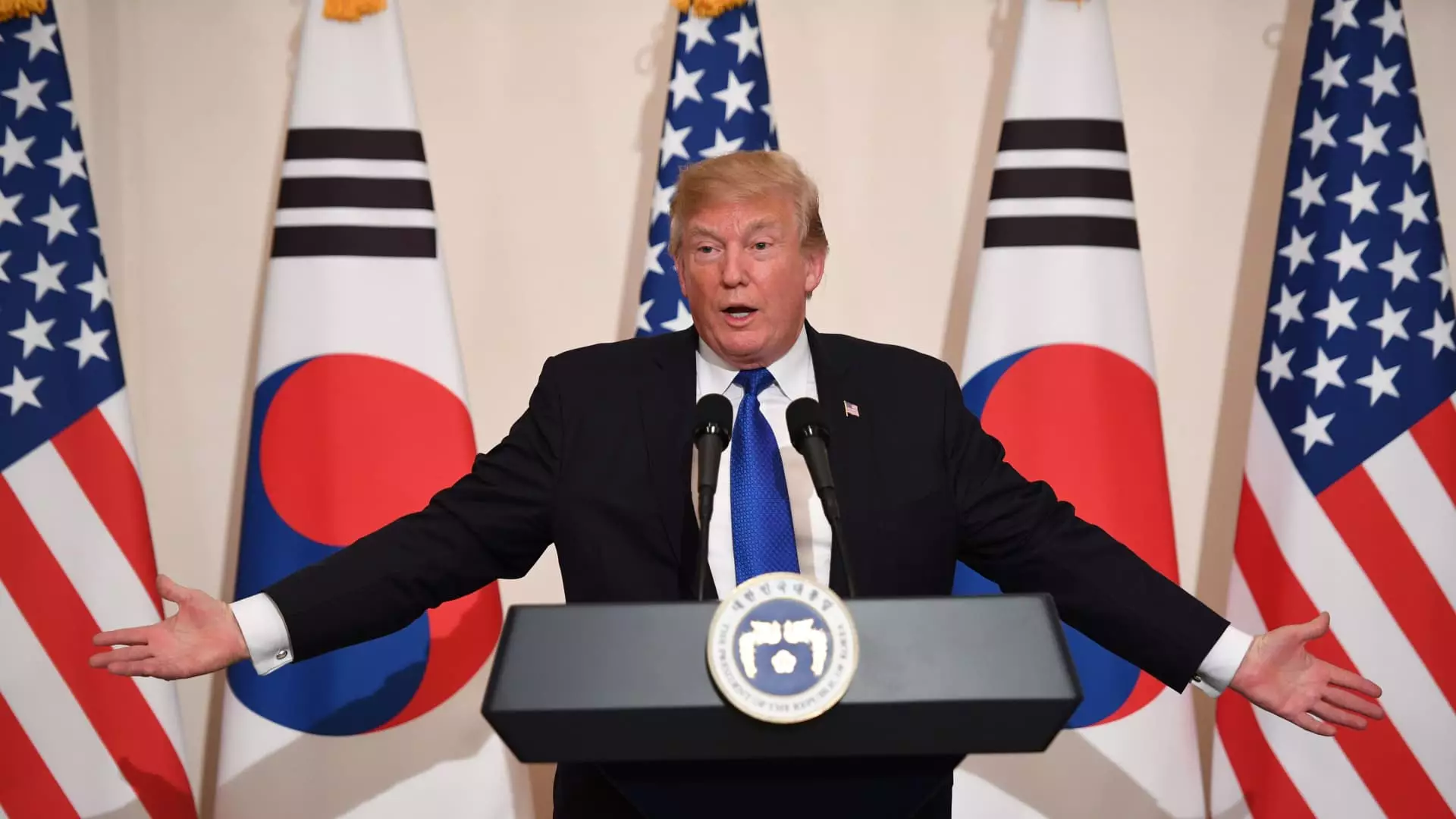The recent announcement of a “full and complete” trade agreement between the United States and South Korea warrants skepticism, not celebration. While Washington touts the deal as a historic breakthrough, the underlying realities suggest it’s more of a strategic illusion than a genuine victory. The narrative constructed around tariffs, investments, and bilateral cooperation is carefully curated to serve short-term political narratives, masking the longer-term implications for American workers and industries.
The promise of reducing tariffs from 25% to 15% on South Korean exports, including automobiles, might seem beneficial at first glance. However, the real effect is a dilution of protection for American manufacturing sectors. Tariffs are a crucial tool for safeguarding domestic jobs and industries from unfair foreign competition. By not fully eliminating protective barriers but merely reducing them, the deal perpetuates a cycle of dependence and vulnerability rather than fostering genuine resilience in the American economy.
Moreover, the narrative of a $350 billion investment fund, with purportedly 90% of profits returning to Americans, rings hollow. Large-scale investments, especially those initiated by foreign governments and corporations, rarely translate into equitable gains for the nation’s workers. These funds often inflate corporate profits, bolster shareholder dividends, or finance project expansions that do not necessarily prioritize American employment or technological sovereignty. The claim that such investments will foster equitable industrial growth overlooks the complex reality that foreign capital often comes with strings attached, including geopolitical leverage that may undermine U.S. interests.
The Illusion of Mutual Benefit and the True Cost to Society
While South Korea’s President, Lee Jae-myung, emphasizes industrial cooperation and mutual benefits, the emphasis appears more rhetorical than substantive. The allocation of $150 billion specifically for shipbuilding—an industry steeped in state subsidies and strategic importance—appears aimed at bolstering South Korea’s dominance while superficially aligning with American interests. This approach risks creating a digital or industrial colonialism, where American policy acts as a facilitator for Korean industries to expand at the expense of genuine U.S. innovation and competitiveness.
Furthermore, the promise that South Korea will purchase $100 billion worth of energy products from the U.S. seems more aspirational than operational. Energy markets are volatile, and the actual flow of commerce may fall short of expectations. Additionally, when dealing with global energy dynamics, transactional promises often become bargaining chips rather than reliable sources of revenue or economic growth. What remains unaddressed is the broader question of whether these transactions help diversify and secure America’s energy independence or simply serve as temporary diplomatic gestures.
The focus on diplomatic diplomacy, centered on mutual exchange rather than strategic independence, raises concerns about America’s future economic sovereignty. Promises of bilateral cooperation should be scrutinized for their long-term implications, not just their immediate political victories.
Negotiating Power in a Shifting Global Landscape
The underlying tone of the deal reflects a recognition that U.S.-South Korea relations are becoming increasingly transactional rather than strategic. While President Trump’s approach favored protectionism and tariffs as leverage, the current agreement tries to balance diplomacy with economic incentives. However, the apparent concessions—such as tariffs, investment commitments, and energy purchases—highlight a decline in America’s negotiating power, not its reinforcement.
At a time when global supply chains are increasingly fragile and geopolitical tensions mounting, relying heavily on amicable trade deals with limited strategic depth could prove dangerous. The narrative of strengthening U.S.-Korea ties may mask the reality that both nations are pursuing narrow economic interests, often at the expense of broader geopolitical stability and principles of fair trade.
In essence, this deal exposes a fundamental flaw: prioritizing short-term economic gains over long-term strategic resilience. It suggests that American policymakers are still caught in an outdated paradigm—believing that more trade, higher investment, and diplomatic handshakes will solve core domestic economic issues.
Ultimately, the deal’s rhetoric of mutual benefit is a carefully constructed veneer that conceals the reality: global power dynamics are shifting, and America’s current approach—focused on transactional gains—may be insufficient for the complexities of the 21st century economy. A more balanced, principled strategy rooted in protecting domestic interests and fostering genuine innovation, rather than short-term diplomatic victories, is needed.


Leave a Reply